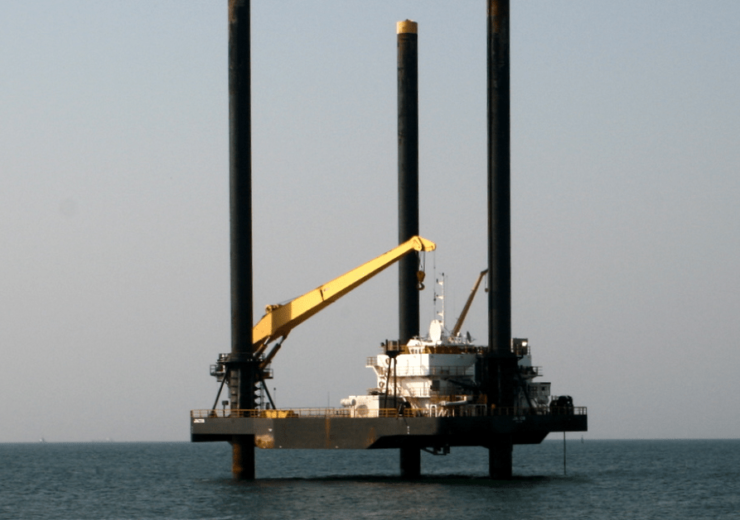Angola has designed a six-year plan to develop new oil assets, but as producers scale back their capital investments this approach is now in jeopardy

Angola is home to a number of deep water offshore oil projects (Credit Wikimedia Commons/Paulo César Santos)
Coronavirus market shocks have forced oil and gas producers to slash their capital spending budgets, and the consequences could be big for Angola, a country where petroleum accounts for a third of the gross domestic product (GDP) and more than 90% of exports.
Africa’s second-biggest oil-producing nation, and a member of the Opec alliance, Angola produced around 1.38 million barrels per day (bpd) in 2019, largely from deep water projects in the South Atlantic Ocean off the continent’s west coast.
Financial incentives were recently introduced under a six-year plan to attract investment for new projects, with analysts at Rystad Energy estimating a peak of around 750,000 bpd would have been added to its output in 2029, offsetting declines in existing ventures to maintain production at the end of the decade close to 2020 levels.
But as foreign oil majors hold back investment amid the current crisis, and project decisions are deferred or shelved, particularly for complex and expensive deep water operations, these best-laid plans are in danger of coming undone.
“Instead of rebuilding Angola’s lost output by 2029, the country will likely never manage to produce at current levels again,” the research firm says.
“The estimated peak of new cumulative output will shrink to 650,000 bpd, and will only be reached in 2032, at which time output from currently-producing projects will have continued to fall from 2029 levels.”
Coronavirus market shocks have derailed Angola oil strategy
The International Energy Agency estimates capital spending across the oil and gas sector globally will decline by a third this year compared to 2019 levels, with the oil majors having announced a series of budget cuts averaging around 25% below pre-crisis guidance.
Developing countries, particularly those like Angola whose economies are heavily reliant on oil and gas revenues, will be particularly impacted by these cutbacks as important foreign investment begins to dry up, putting projects to develop their domestic infrastructure under threat.
Earlier in the year, the IEA and Opec released a joint statement warning of “major social and economic consequences” for such regions, with oil and gas revenues in petroleum-dependent developing economies likely to fall by between 50% and 85% this year.
“The oil price crash has led all the majors operating in Angola to ditch or leave their drilling rigs idle,” Rystad notes.
“Projects in the country, along with many other western African nations, were among the first to be put on hold since these were relatively high-cost offshore projects. The same projects which were deemed profitable under the new tax incentives have now been put on the backburner.”
The turbulence that has disrupted oil markets and decimated global demand since the start of the pandemic has now prompted Angola’s National Agency for Petroleum, Gas and Biofuels (ANPG) – a regulator only created in 2019 – to postpone the country’s 2020 licensing round for new exploration blocks, scuppering plans to offer 10 frontier offshore acreages in the Namibe and Benguela basins.
Rystad’s senior upstream analyst Siva Prasad warns: “Angola desperately needs to accelerate its new developments to reduce its declining production, and must undertake more exploration to replace its depleted reserves.
“Despite the government’s efforts to make operations in the country more operator-friendly, investors may quit Angola unless the government acts swiftly.”
Compliance with Opec production cuts adds further pressure
Adding to these pressures is the Opec+ agreement to curb global oil production in the face of low demand, a huge commodity surplus and low oil prices, which has been in effect since May.
Angola has been a member of Opec since 2007, and under the terms of the arrangement must commit to limiting its oil production to a target of 1.18 million bpd while the existing measures, proposed to run until the end of July at the current level, remain in place.
Compliance with these cutbacks among some Opec+ members was a contentious issue at the last meeting of the exporter group, with de facto leaders Saudi Arabia and Russia making their involvement contingent on all members meeting their reduction quotas amid concern some countries were not fulfilling commitments.
Angola was one of those to miss its targets in May and June, overproducing at levels of 1.28 million bpd and 1.24 million bpd respectively – or by 100,000 bpd and 60,000 bpd more than the Opec+ agreement requires.
According to Reuters news agency, the country has now agreed to improve its compliance with the output cuts, and will compensate for the previous months’ overproduction by making deeper reductions between July and September.


